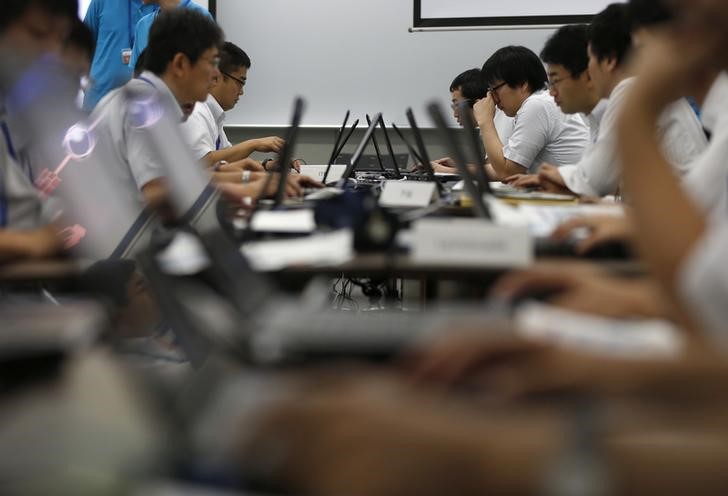The Internet facilitates rapid data-sharing and increased communication between individuals, firms and government entities. This generates significant risks but, for most of the 2000s, Japan did not take commensurate countermeasures. The complacent attitude toward information technology security has persisted in Japan too long due to a combination of ignorance, wishful thinking and the belief that cybersecurity is only a cost, rather than a prudent investment.
It doesn't get any more embarrassing than the discovery that the Wi-Fi network at the lodging for reporters covering the G-7 Ise-Shima summit was tampered with and can infect users’ computers with a virus that has been traced back to Russia. Government officials maintain, however, that strict cyber-terrorism measures have been implemented at the summit venues to prevent any such problems. Well, that’s their story and they're sticking to it.
The theft of data from police departments in recent years has exposed thousands of people’s personal information and many years of investigation data. These breaches highlight that authorities can't even safeguard their own information, raising questions about their ability to enforce cybersecurity and spreading awareness of the threat. There have also been breaches affecting politicians, the Diet's servers and various ministries and agencies, not to mention the theft of data from major firms such as Benesse Corp. and websites such as Ashley Madison, a social networking service for adulterers.



















With your current subscription plan you can comment on stories. However, before writing your first comment, please create a display name in the Profile section of your subscriber account page.